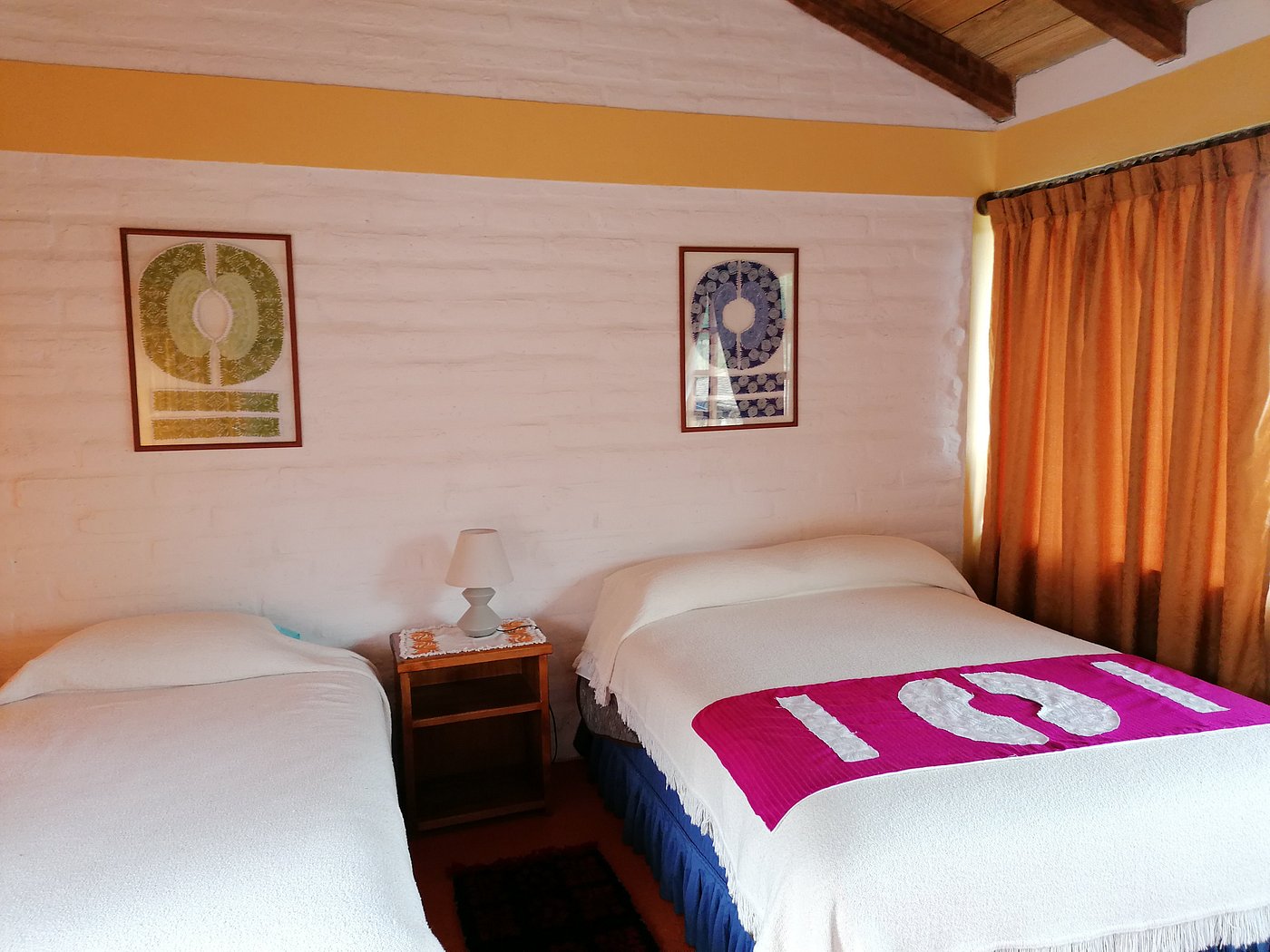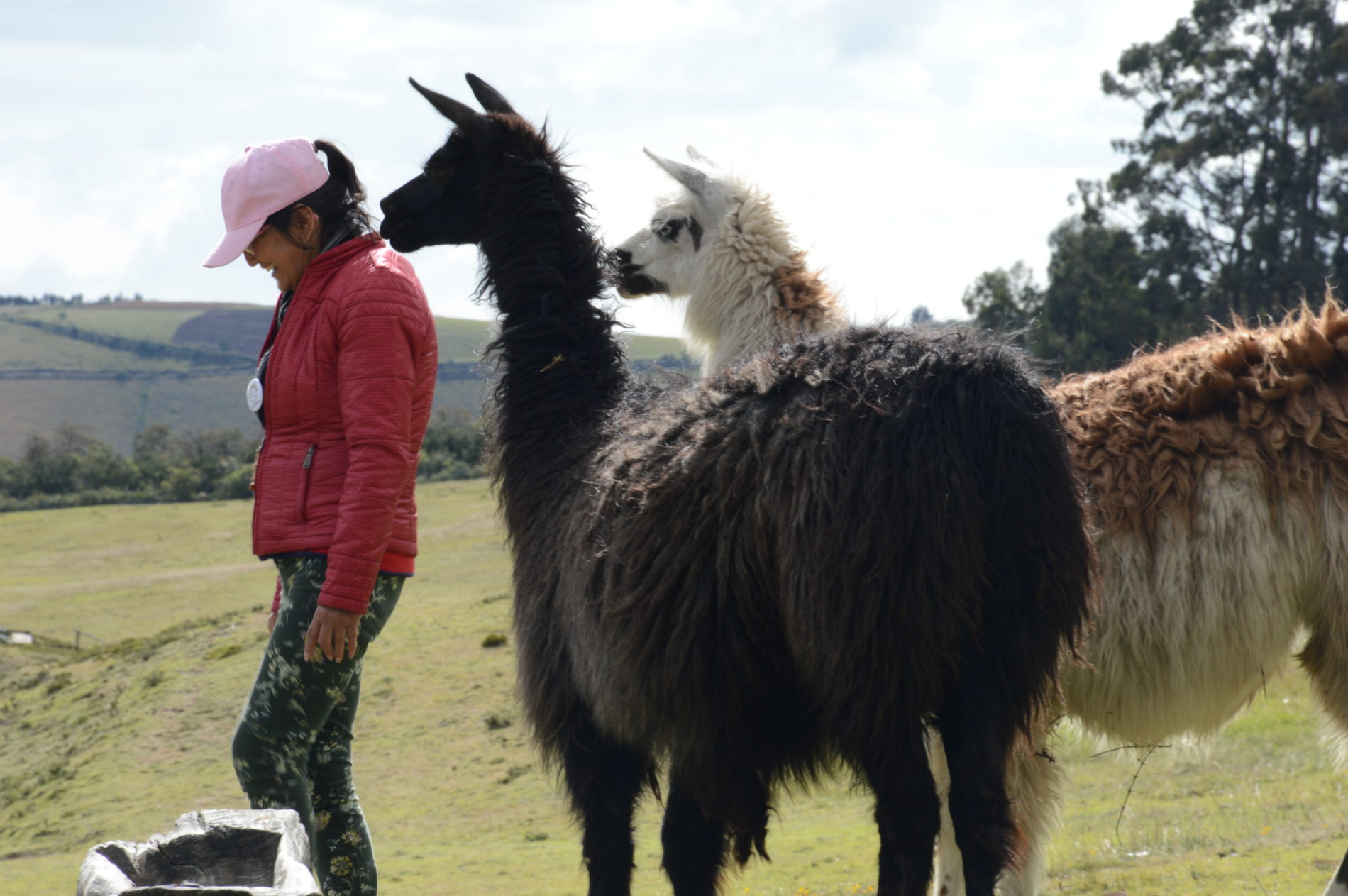Returning Program! IFR anticipates this program will return next field season. Details and updates for summer 2025 coming soon.
Overview
Hacienda Zuleta is a colonial-era hacienda nestled in a beautiful scenic valley in the eastern cordillera of the Andes in northern highland Ecuador with an extensive and storied history dating back before the arrival of the Spanish in 1532. The hacienda is home to one of the largest pre-Columbian earthen mound and pyramid sites built by the Cara people starting around 900 A.D. Abandoned just before the Inca conquered the region in the late 1400s, it was eventually reoccupied by the Spanish. Originally founded by a religious order, the hacienda became the private estate of two very popular 20th century presidents of the Republic of Ecuador. Still owned by the Plaza family, Zuleta is today one of Ecuador’s most famous creameries and the site of a conservancy dedicated to the protection of the endangered Andean condor. The Proyecto Arqueológico Zuleta (PAZ) field school team is a group of international and Ecuadorian researchers studying the early life and occupation history of the hacienda and associated mound site including the late prehistoric volcanic impacts on the site and its ancient agricultural systems, its cultural development and social hierarchy, its place in the resistance to the Inca conquest, and the reasons for its eventual abandonment. Ultimately, our research seeks to better understand the development of complex societies, the formation of their cultural landscapes and landesque capital, and their response to climate change and volcanic impacts. Students at PAZ will receive a culturally immersive field school experience at one of the most ecologically and historically unique sites in Ecuador. They will learn about Andean/Ecuadorian history and prehistory and gain hands-on training in scientific and archaeological theory and research design as well as field methods in archaeology, geoarchaeology, and paleoecology.
Please note: this program is contingent upon the field school and it’s participants receiving necessary permits from local agencies. Permits are anticipated, but cannot be guaranteed.
| Course Details | |
|---|---|
| Course Dates | July 15 – Aug. 17, 2024 |
| Course Type | Field Archaeology, geoarchaeology, paleoecology |
| Instructors | Dr. David Brown, Dr. J Stephen Athens, William Pratt, Ryan Hechler, Dr. José Echeverria, |
| Credits* | 8 semester (12 quarter) |
| Early Deadline | November 1 |
| Fees Due By | April 15 |
| Program Fees | (2024) |
|---|---|
| Tuition | $4,475 |
| Transcript Fee* | $300 |
| Health & Evacuation Insurance | $125 |
| Room & Board | $1,360 |
| TOTAL: | $6,260 |
*Please email admissions@ifrglobal.org for any application issues.
Applications accepted on a rolling basis until program fills or final deadline passes.
Instructors
The directors welcome emails and inquiries about the research elements of this project. More general information (tuition, health insurance, and payment schedule) can be found under the ‘Students’ tab above. Any further questions may be addressed to IFR staff. Additional details about research, course schedule, travel, accommodation, and safety can be found on the syllabus. Contacting the directors or the IFR office is encouraged and appreciated. It may help you determine if this field school is a good fit for you.
Testimonials
This is a new IFR field school. No student testimonials are available at this time.
Payment & Student Fees
Application Fee: There is a $45 fee to submit an online application.
Deposit Payment: A nonrefundable $500 deposit is due within 3 weeks of program acceptance in order to secure your place. The remainder of your program fees are due by the deadline indicated under “Course Details”.
*Transcript Fee & Academic Credit Opt Out: If you wish to participate in an IFR field school without earning academic credits, you will not be charged a transcript fee.
For more information about payment, fees, and policies, please see details under our Payment & Finances and Withdrawal and Cancellation Policy pages.
Accommodations
Students will stay in a small, but comfortable hotel in the community of Zuleta within walking distance of the Hacienda main entrance. Students will have their own beds but generally be required to share a room with one or two other students. Each room will have access to its own bathroom. Depending on the number of applicants, the program will occupy a dedicated section of the facility, or possibly the entire hotel. While blankets will be provided, the hotel is not heated and nighttime temperatures at that time of year can often be quite cold, so students may choose to bring a sleeping bag although most have found them unnecessary. Regular cleaning will be conducted by the hotel staff, but the facility is a small family-run hotel and students should do their part to maintain clean and hygienic living conditions for themselves and others.
Lunches will consist of sandwiches and field food prepared by students themselves from foods provided at the hotel each morning. Breakfasts and dinners will be eaten as a group at the hotel, prepared by local cooks. Local foods are very heavily potato and rice based but can be accompanied by a variety of fruits, vegetables, and proteins. Some accommodations can be made for vegans, vegetarians, and students with allergies or special dietary restrictions, but other specific dietary restrictions such as kosher or halal meals may not be feasible. All participants in a field school, students and staff, will wear masks while indoors (i.e. during lectures, during labs, in shared residential spaces, etc.). Regular hand washing will be a part of the project’s daily schedule.


Travel Info
Natural disasters, political changes, weather conditions and various other factors may force the cancellation or alteration of a field school. IFR recommends students only purchase airline tickets that are fully refundable and consider travel insurance in case a program or travel plans must change for any reason.
General information for this program is below, but keep in mind we will discuss any updated travel information and regulations during the required program orientation, which could affect travel plans.
New students can meet field school directors at the Quito International Airport on Monday July 15, 2024. Students must inform the project staff of their arrival time in Quito before the project to arrange transport from the airport which is some distance from the site. Directors will transport students from the airport directly to the site by car. If you are coming overland or would like to arrange your own transportation to the site, please inform the project as soon as possible and provide contact information. If you missed your connection, your flight is delayed, or you are held at the border for any reason, please call, text or email the project director immediately. A local emergency cell phone number will be provided to all enrolled students.
Once at the Zuleta community, students will travel from the hotel to the excavation locations either on foot or by vehicle depending on the distance to the location. Students traveling by vehicle will be expected to wear masks while inside.
VISA REQUIREMENTS
A valid passport over six months from its expiration date is required to enter Ecuador. This is important; persons with less than six months before their passport expiration will be turned away at the airport. No visa is required for U.S. visitors for stays of 90 days or less. Stays of greater than 90 days will require a travel visa to be obtained in advance.
Citizens not from the USA are asked to check the embassy website page at their home country for specific visa requirements.
Student Safety
The IFR primary concern is with education. Traveling and conducting field research involve risk. Students interested in participating in IFR programs must weigh whether the potential risk is worth the value of education provided. While risk is inherent in everything we do, we do not take risk lightly. The IFR engages in intensive review of each field school location prior to approval. Once a program is accepted, the IFR reviews each program annually to make sure it complies with all our standards and policies, including student safety.
Students attending IFR international programs are covered by a comprehensive Health Insurance policy that includes physical illness or injury, mental or chronic conditions. No deductible and 100% of costs are covered up to $250,000. In addition, we provide Political and Natural Disaster Evacuation policy, which allow us to remove students from field school location if local conditions change. Our field school directors are scholars that know field school locations and cultures well and are plugged in into local communities and state institution structures.
Students attending IFR domestic programs (within the US) must have their own health insurance and provide proof upon enrollment. IFR field school directors are familiar with local authorities and if in need of evacuation, local emergency services and/or law enforcement will be notified and activated.
The IFR has strong, explicit and robust policy towards discrimination and harassment in the field. If students feel they cannot discuss personal safety issues with field school staff, the IFR operates an emergency hotline where students may contact IFR personnel directly.
Call (877-839-4374) or email (info@ifrglobal.org) if you have questions about the safety of any particular program.



















